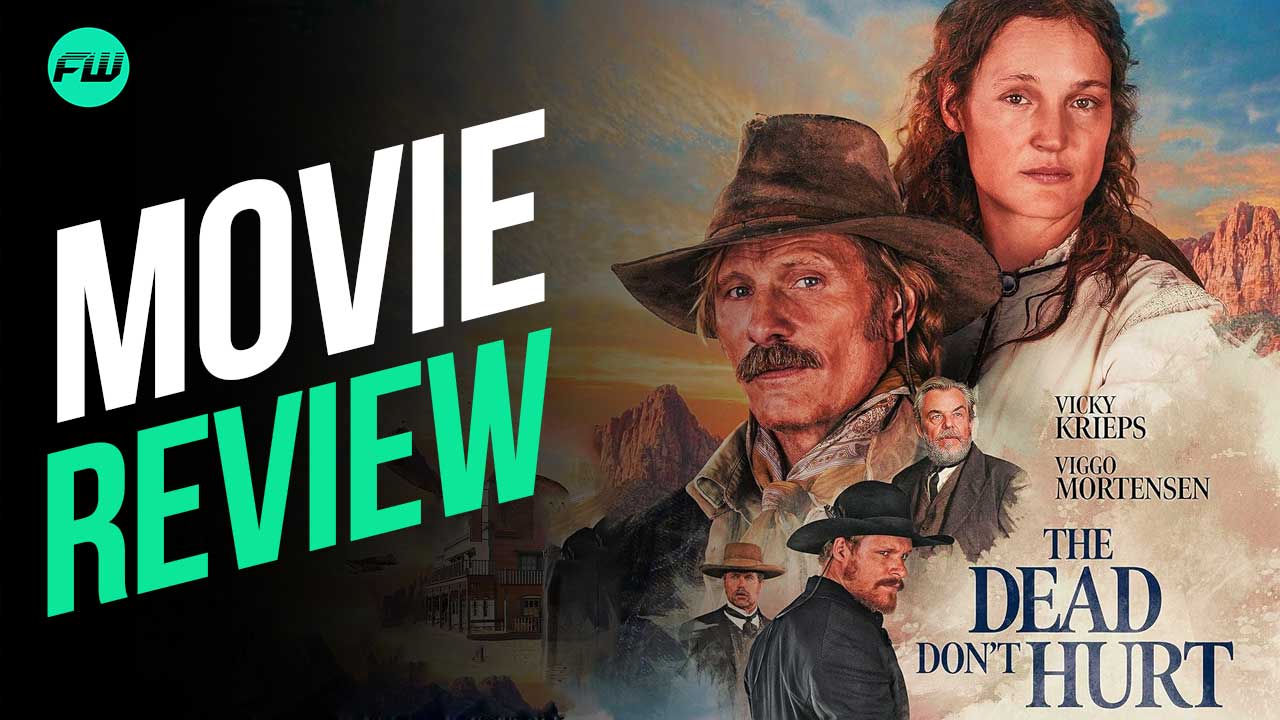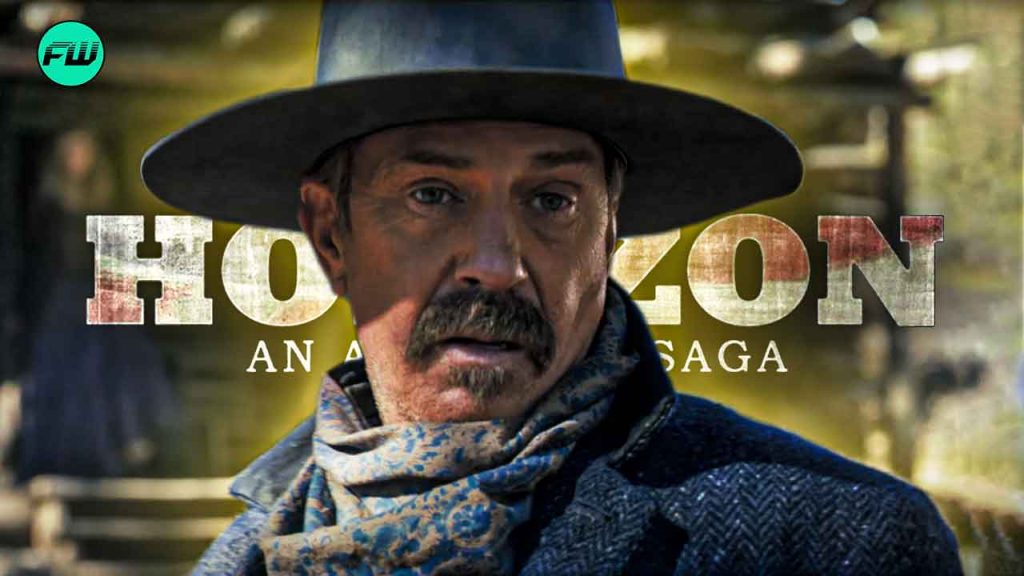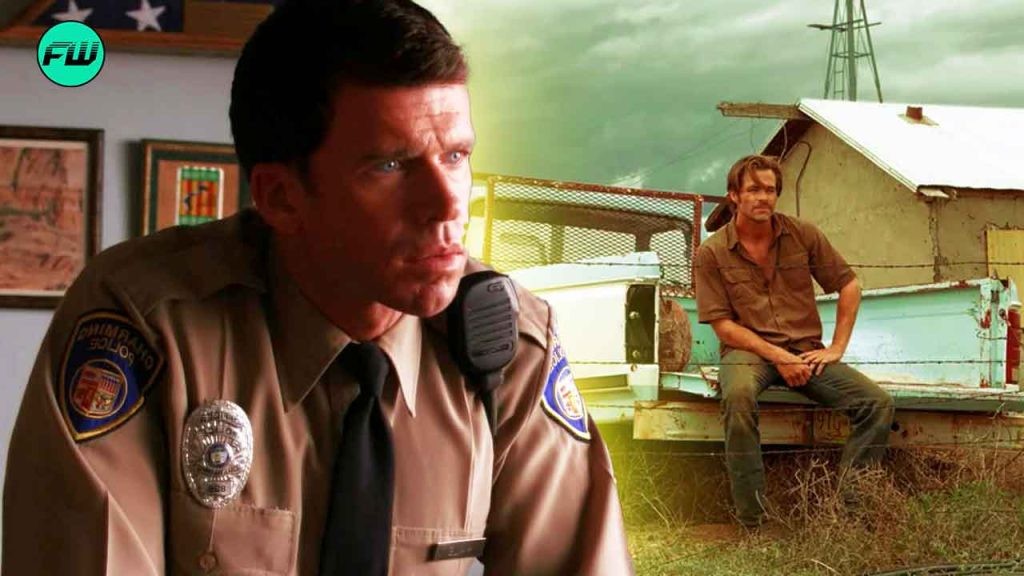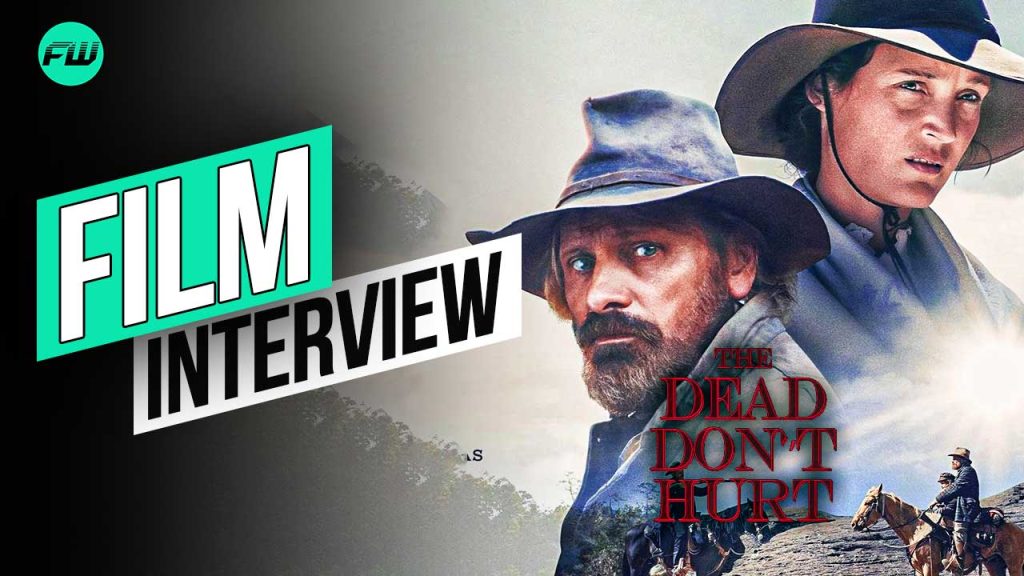The American Western may have long passed its heyday, but the genre has endured throughout the years. While the visuals and ideas it addresses may change, the basic foundation continues to draw fans. After all, where else can you pit man versus man versus the environment on such a large scale? The Dead Don’t Hurt seeks to continue this legacy. The sophomore feature from Viggo Mortensen finally debuts in America after hitting the fall festival circuit. Featuring an excellent performance from Vicky Krieps as its face, The Dead Don’t Hurt mostly plays like a traditional genre exercise. However, using an immigrant couple at its center speaks to the changing landscape in American life.
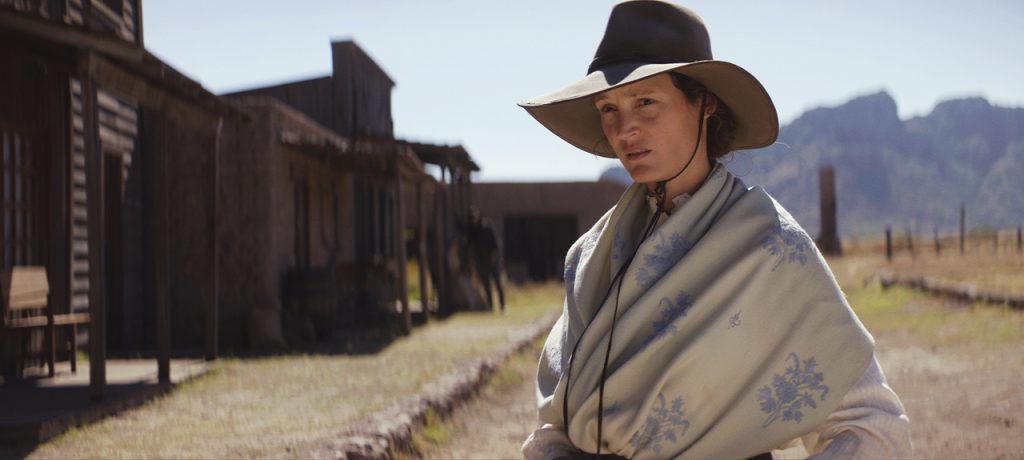
The Dead Don’t Hurt Plot
Vivienne Le Coudy (Krieps) passes away with her husband, Holger (Mortensen), at her side. At the same time, Mayor Rudolph Schiller (Danny Huston) requests Holger help bring a local crime to justice. We flash back over the decades prior, when Holger and Vivienne meet in the streets of San Fransisco. After a rocky start to their relationship on Holger’s land, Vivienne finds herself alone as Holger enlists in the Civil War. She not only fights the elements but also the controlling family of the town. Alfred Jeffries (Garret Dillahunt) and his cruel son Weston (Solly McLeod) run the town as their playground, creating a hostile environment for all who enter.
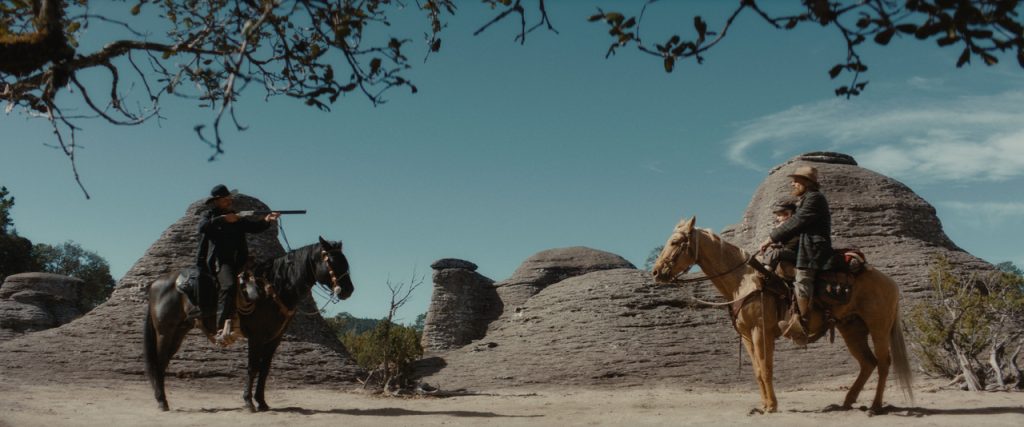
The Critique
The Dead Don’t Hurt places many of the traditional landmarks of the genre front and center. There’s an old-timey saloon, a dozen blackhats, and the looming presence of the Civil War. Mortensen takes these moments to put The Dead Don’t Hurt in line with a lineage of films, ranging from Gone with the Wind to The Outlaw Josey Wales. Those movies established archetypes that have existed within the genre for decades, and The Dead Don’t Hurt uses that foundation as a springboard.
As a result, Mortensen takes a giant leap as a director. His first feature missed the mark, but he quickly establishes a more universal story in The Dead Don’t Hurt. He tells us about the trials and tribulations of marriage, most especially forgiveness. He provides strong characters for himself and Krieps to embody. He also fills out the cast wonderfully, with Huston playing his most empathetic character in years. McLeod shines as a discovery, quickly emerging from the background with a vicious demeanor. Mortensen’s care in pacing and development gives us a taste of where the characters are going before delving into the path that led them to their destiny.
Much of The Dead Don’t Hurt lies on Krieps’ shoulders. The actress, famous for her star-making turn in Phantom Thread, does not disappoint. Krieps becomes the driving emotional throughline for the movie and its most intriguing character. Her journey into the darkness of the American West and her tragic character arc help shape the future of every character. Krieps remains as alluring a presence as ever, acting circles around a talented cast. Her nonverbals are even more powerful than her outbursts. She communicates an innocence lost from the hard life she lives and does it while showering other characters with love. She lifts the story around her, allowing Mortensen a cathartic role in his own right.
The strength shown by Krieps highlights a new lens for the Western. More often than not, characters traumatized beyond all measure were doomed in these stories. Unforgiven and The Searchers left its women weaker than they started, even when they attempted to regain agency. However, The Dead Don’t Hurt never makes Krieps seem anything less than capable. Even in her lowest moments, she fights for life and to make the world better for her family.
With a visual palette that draws on the richness of the American West, The Dead Don’t Hurt looks very pretty. However, it does not show us anything new. Mortensen allows much of the nonverbals or landscapes to speak for themselves, but it does not quite rise to the heights of other neo-Westerns in this regard. It’s not bad, it just does not drastically shift our visual palette, instead opting to showcase its unique aspects in its story. While this is admirable, it can do both, and Mortensen can provide a little more vision on this front.
Most interesting of all is the central relationship between immigrants from different nations. By viewing this story through this lens, it becomes a more potent tale about the ways dominant forces in cultures seek to maintain their power. The Jeffries assert their power through rage and violence if necessary. Meanwhile, the immigrant characters try to find a place to better their lives, even when that puts them on a dangerous path.
It’s important that the character who goes to war is an immigrant rather than the established power hierarchy. Even when immigrants are new to American culture, they wish to help better the culture. Meanwhile, the societal hierarchy wishes to maintain the status quo. The nuances this provides to The Dead Don’t Hurt show a stronger link to our current world. In an era where concerns about “the border” and anti-immigrant rhetoric are at an all-time high, showing a story about immigrants bettering our country becomes more important than ever.
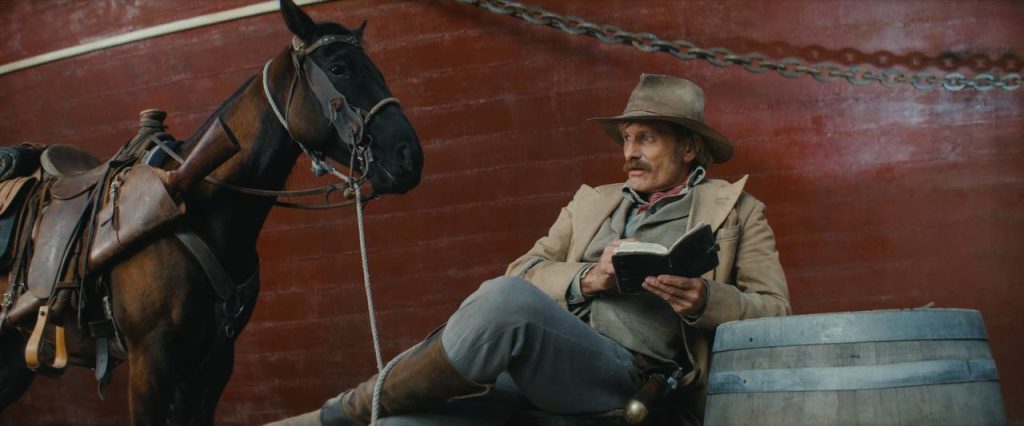
Conclusion
While The Dead Don’t Hurt highlights a new avenue for Westerns today in its characters, the themes and ideas echo through the genre’s history. There’s a lot to like, and anyone who likes cowboy films should be at home. For Mortensen, it represents a big step forward as a director. Like Eastwood, he appears to have natural instincts to tell stories in this world. If he can continue to shine like this as a filmmaker, this might be an early hint of his talent behind the camera. In the meantime, The Dead Don’t Hurt will draw attention as a good but not extraordinary entry in the genre.
7/10

Follow us for more entertainment coverage on Facebook, Twitter, Instagram, and YouTube.

